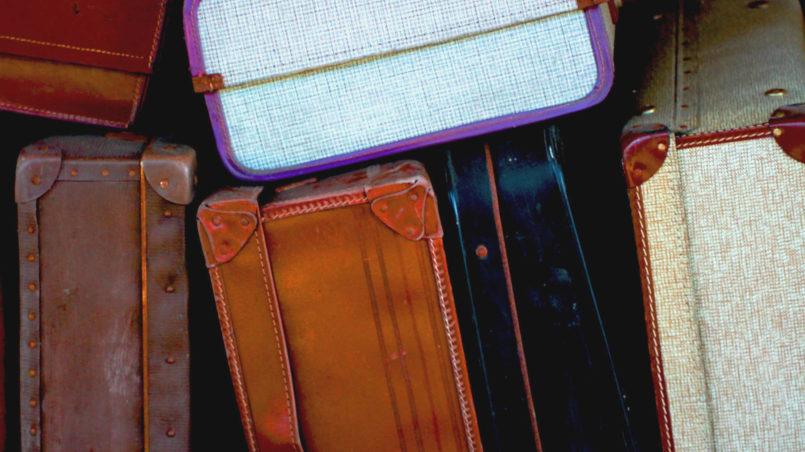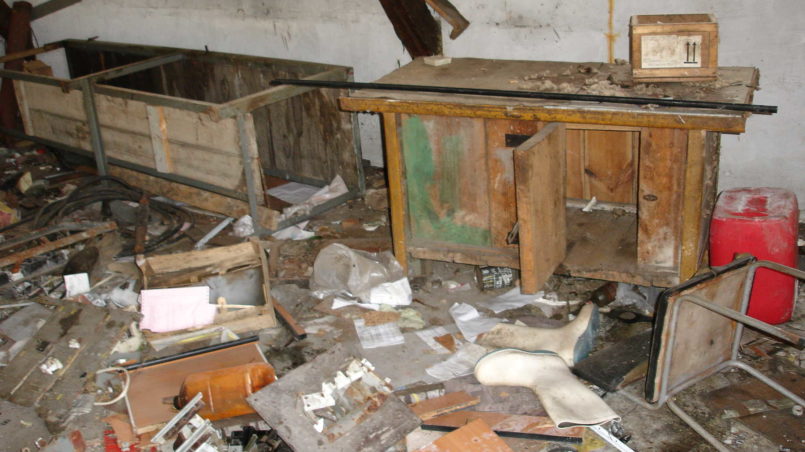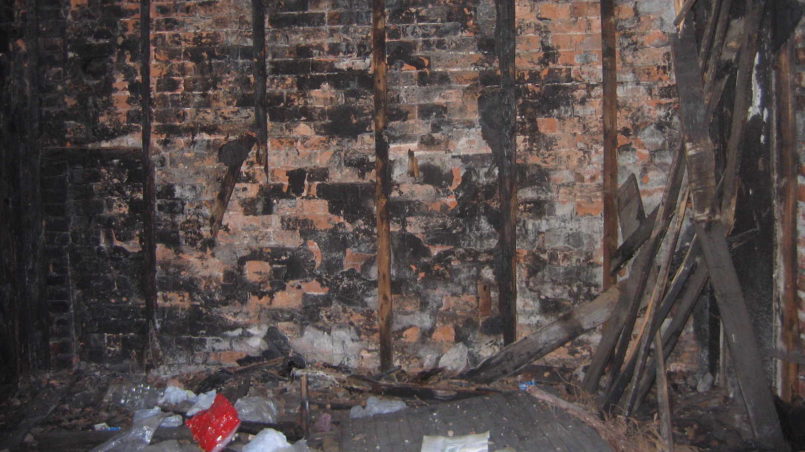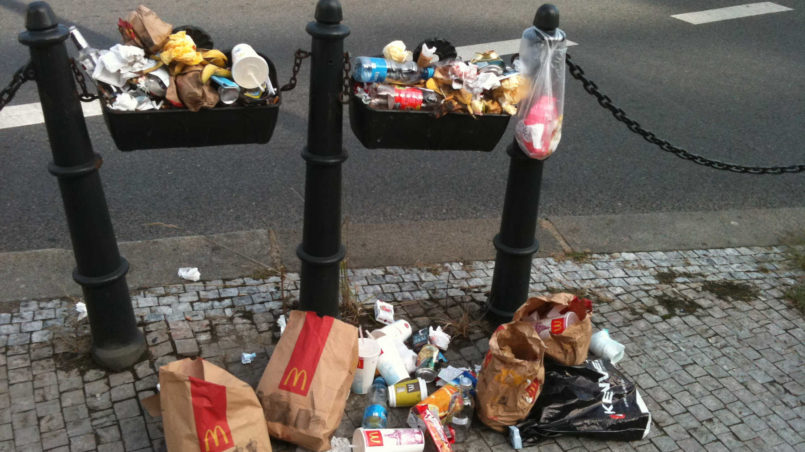Never Ever Trust a Relocation Company

Have you ever watched a documentary about how a hermit crab is relocating? Basically, the move of a hermit crab is similar to that of a human being, except that it is less complicated for him. But the universal goal remains the same: to leave the old house and move into the new one. From A to B – with as little effort as possible.
In the human world, this usually works only with the help of a relocation company. There are two types of cost items to be considered: either you pay the company 25-30 euros per hour (this is actually the price for Europe, Austria), or you pay an all-inclusive service. The latter sounds more practical, one might think. All in all, my move amounted to a total of 2,500 euros for two apartments in a house including the conversion of a kitchen and the assembly of the furniture; and the abandoned apartments were to be left “broom-clean“.
The duration of the move was set at three days (Friday, Saturday, and Sunday). But it’s been almost a week. In this case, Lenin would say: “Trust is good, but control is better.” I am basically against this slogan, but even if you put the money trustworthily on the table, everything must still be coordinated by yourself, what comes exactly where; then check whether everything was picked up, what was marked accordingly; and check whether the furniture did not break during disassembly or was not tampered with during assembly.
But apparently, nothing has changed in the last ten years when you book such a relocation service: anyone who trusts is confronted with botched work or with changes to what was originally agreed. And if I add up the back and forth driving and the resulting damage, I suddenly come to a total of 3,000 euros in relocation costs. The damage that occurs is generally scratches and dirt stains on the walls.
The perk of it all: some boxes have disappeared. (After some telephone intervention they suddenly reappeared …)
So what does “broom-clean” actually mean? This term, which is often mentioned as a claim in the rental agreement, is debatable. There is no law in which the word “broom-clean” appears or is even described in more detail. The removal company defines this term as:
The apartment is delivered to the customer with a clean broom, all waste is disposed of and the cellar is cleared out. The dirt left behind during the move is swept together and disposed of by the company.
However, there was no trace of a broom cleanliness, but rather the opposite: empty beverage cans distributed around the apartment, cigarette butts in the coffee mugs, dust deposits under the furniture that were not swept and tidied away – and in the toilet someone forgot to flush down his “big business“. I was also obliged to throw away my ten bags of jars in the cellar myself.
The reason for this was that none of us checked whether the apartment was actually left “broom-clean“. The ladies and gentlemen wanted to be paid an additional five hours because they were behind schedule. There were three removal workers on the job. It was agreed that one of them would stay in the new house and assemble the furniture. But instead, all three went back and forth several times together. These five hours were, of course, missing later for the assembly and the kitchen conversion. That’s why the removal company had to split the five “additional” hours over two more days – because who could already work top-fit for three days?
The psychological stress that I experienced was inconvenient. They always wanted to turn the tables and dominate the customer, i.e. me. Verbal conflicts arose in which I had to make clear to them that, as a customer, I was using the service and not vice versa.
Well, in hindsight, you’re smarter. If you have good acquaintances, friends, and family, it is probably better to organise the move with them. Since only then is trust actually possible. Only then is being there for each other possible. And at some point, they would need your help, too – and then it’s good to be there for them again.
The bureaucracy created by a move is a pain. As a citizen, you surely have an identity. Every official change, especially the change of address, of your data, costs a lot of time and money. Furthermore, the periods of notice must be observed. Getting rid of the paperwork mutates into a Kafkaesque scenario, and waiting for a letter of reply borders on eternity.
Energy services, such as electricity and heating, must be shut down, and other energies, such as resilience and endurance, must be ramped up.
Then there is the matter of the Internet. Yes, we all believe that in the 21st century, in the digital age, all databases are networked in some way. This may be the case, but as soon as an Internet provider has a monopoly position in the area, you as a customer must be very skeptical in order to get your Internet access within two weeks. After all, the user has to wait! Can you imagine how frustrating this is for a person who uses the Internet as a work tool? Finally, access was provided and a stone fell from my heart.
Yes, even in the countryside you have to fight for your rights.
A move is not nice at all. You say goodbye to your old homeland and greet a new one. Your environment changes radically. From a metropolis, one arrives in an environment of valleys, brooks, and mountain country. Suddenly I have to manage 104 m² on three levels with a garden – before it was 52 m² in an old building apartment in the middle of a big city – with a dungeon, pardon cellar compartment (but it did look like a dungeon).
Now I have a family to take care of, so I have to think of three people. I’m no longer a child without a sense of responsibility. Yes, now I am an adult but I will never lose the child in me. I can now say that part of my dream has finally come true.
Translation German-English: Anna Dichen







